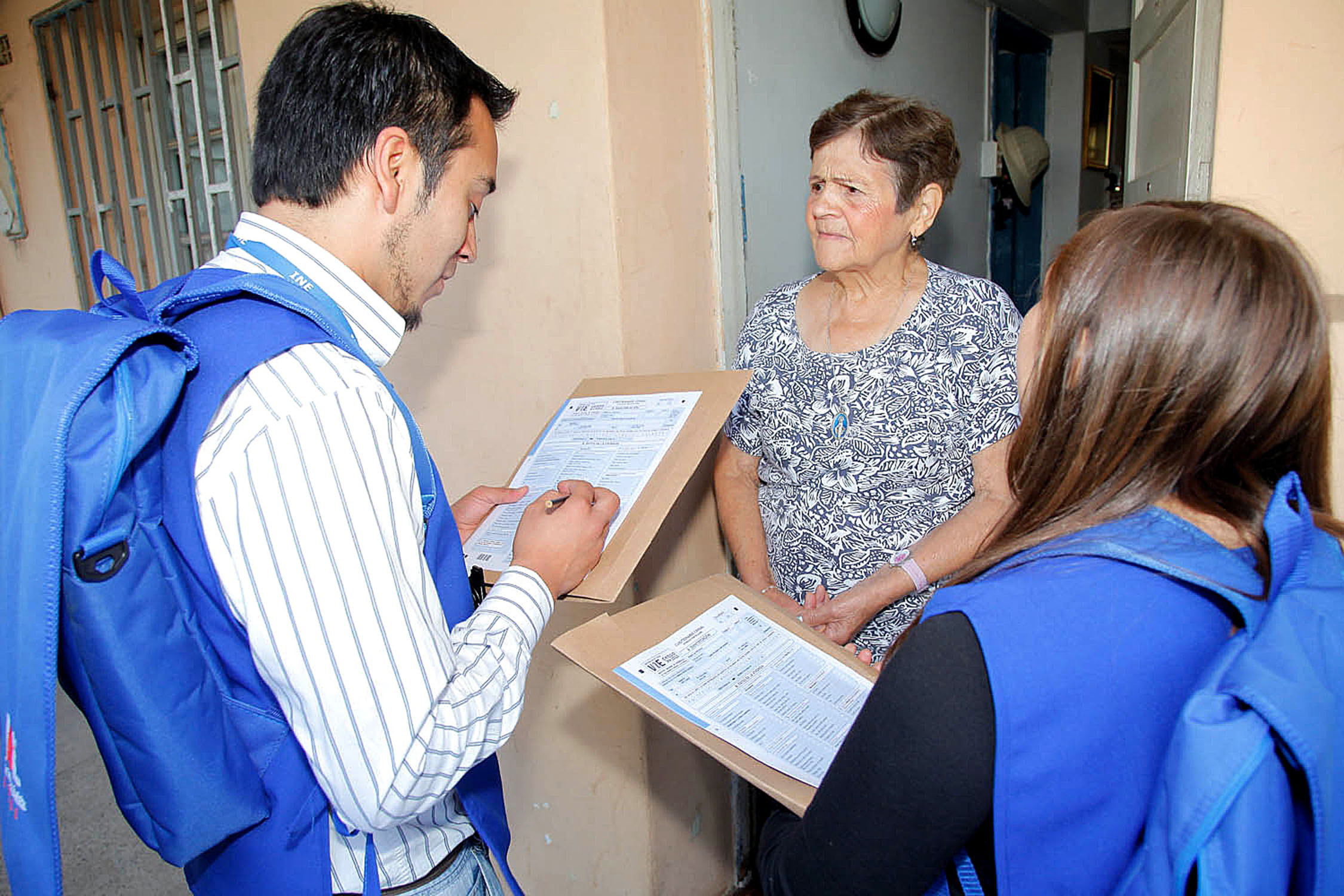Censo 2024: The Countdown Begins For A Pivotal Demographic Snapshot
The Censo 2024 is more than just a statistical exercise; it's a snapshot of the current state of the nation's demographics. The Census is the cornerstone of government data collection, providing invaluable insights into the country's population, economic growth, and societal trends. As the country prepares for the 2024 Census, there's a growing sense of anticipation among demographers, policymakers, and the general public. In this article, we'll delve into the significance of the Censo 2024, its implications, and what to expect from the data.
The Census is a mandatory exercise that requires every household to participate. The data collected will be used to allocate federal funds, determine the representation of each state and district in Congress, and identify areas in need of economic development. The Census also provides a wealth of information on the country's demographic makeup, including population growth, age distribution, income levels, and education.
The 2024 Census will mark a significant shift in the way data is collected, with a focus on digital engagement and outreach. The Census Bureau is planning to introduce new technologies, such as blockchain and artificial intelligence, to improve data collection efficiency and accuracy. Additionally, the Census will be conducted online, with paper forms and in-person interviews available for those who prefer them.
The Censo 2024 is crucial for policymakers and researchers who rely on demographic data to inform their decisions. Understanding population trends, such as migration patterns and age distribution, is essential for developing effective policies to address issues like housing, transportation, and healthcare. The Census data will also provide insights into the country's economic growth, including the growth of certain industries and the decline of others.
Benefits of the Censo 2024
- Improved Representation: The Census data will determine the number of representatives each state and district will have in Congress.
- Targeted Economic Development: The data will identify areas in need of economic development, allowing policymakers to allocate funds and resources effectively.
- Informed Policy Decisions: The Census data will provide policymakers with a better understanding of population trends, enabling them to develop data-driven policies.
- Community Development: The Census data will help communities identify needs and develop targeted programs to address social and economic issues.
The Importance of Demographic Data
Demographic data is a critical component of the Census, providing insights into the country's population trends and patterns. The Census data will include information on population growth, age distribution, income levels, education, and housing. This data will be used to develop policies that address issues like poverty, inequality, and social justice.
The Census data will also provide insights into the country's economic growth, including the growth of certain industries and the decline of others. This information will be essential for policymakers and researchers who need to understand the impact of economic trends on the population.
Key Demographic Trends to Watch
- Population Growth: The Census data will provide insights into the growth rate of the population, including the number of births and deaths.
- Age Distribution: The Census data will show the age distribution of the population, including the number of children, working-age individuals, and seniors.
- Income Levels: The Census data will provide information on household income levels, including the median household income and poverty rates.
- Education: The Census data will show the educational attainment of the population, including the high school graduation rate and college degree holders.
The Census Process
The Census process typically begins several months before the data collection period. The Census Bureau will begin contacting households to inform them of the upcoming Census and provide instructions on how to participate. The Census will be conducted in several phases, with each phase lasting several weeks.
The first phase will involve the mailing of census forms to all households. The forms will include questions about household members, including name, age, sex, and relationship to the household head. The forms will also include questions about housing, including the type of housing and whether it is owner-occupied or renter-occupied.
The second phase will involve the collection of data from households that responded to the initial forms. The Census Bureau will use a variety of methods to collect data, including phone interviews, online surveys, and in-person interviews.
The final phase will involve the analysis and processing of the data, which will be used to produce the Census data.
How to Participate
- Online Participation: The Census will be conducted online, with households able to respond to the forms electronically.
- Paper Forms: Households can also respond to the forms by mail or in-person.
- Phone Interviews: The Census Bureau will conduct phone interviews with households that did not respond to the forms.
- In-Person Interviews: The Census Bureau will conduct in-person interviews with households that require additional information or documentation.
The Impact of the Censo 2024
The Censo 2024 will have a significant impact on the country's demographics, economy, and society. The data collected will be used to inform policy decisions, develop targeted programs, and allocate federal funds.
The Census data will also provide insights into the country's population trends, including migration patterns and age distribution. This information will be essential for policymakers and researchers who need to understand the impact of demographic trends on the economy and society.
Economic Implications
- Economic Growth: The Census data will provide insights into the growth of certain industries and the decline of others.
- Poverty Rates: The Census data will show the poverty rates in different regions and communities.
- Inequality: The Census data will provide insights into the levels of inequality in different regions and communities.
Conclusion
The Censo 2024 is a pivotal demographic snapshot that will provide insights into the country's population trends and patterns. The data collected will be used to inform policy decisions, develop targeted programs, and allocate federal funds. As
Dididdy Pass Away
Did Karla Homolka Parents Forgive Her
When A Guy Hugs You Multiple Times
Article Recommendations
- Manuel Garcia Rulfo Wife
- Sondra Blust
- Aishah
- Beyonc
- Denzel Washington Politics 2024
- Trudeau Net Worth
- Devrim Lingnau
- Camille Monfort
- Rainbow Kiss
- Shahar Isaac



